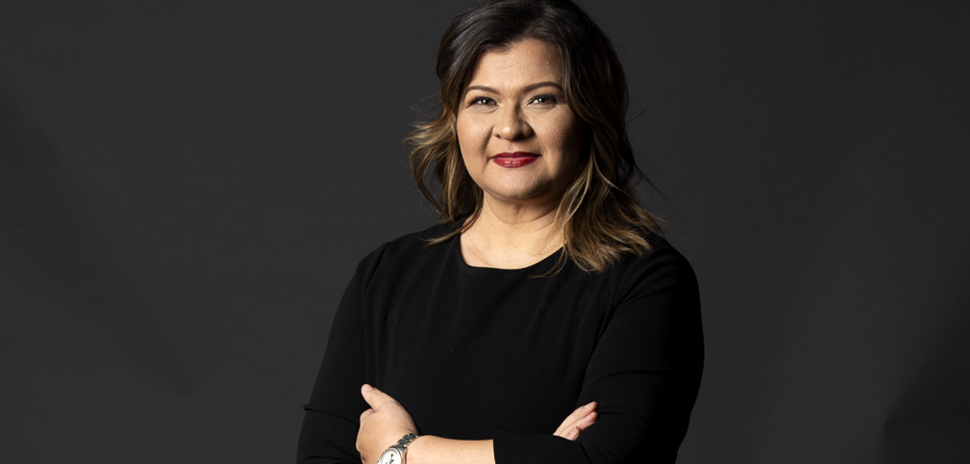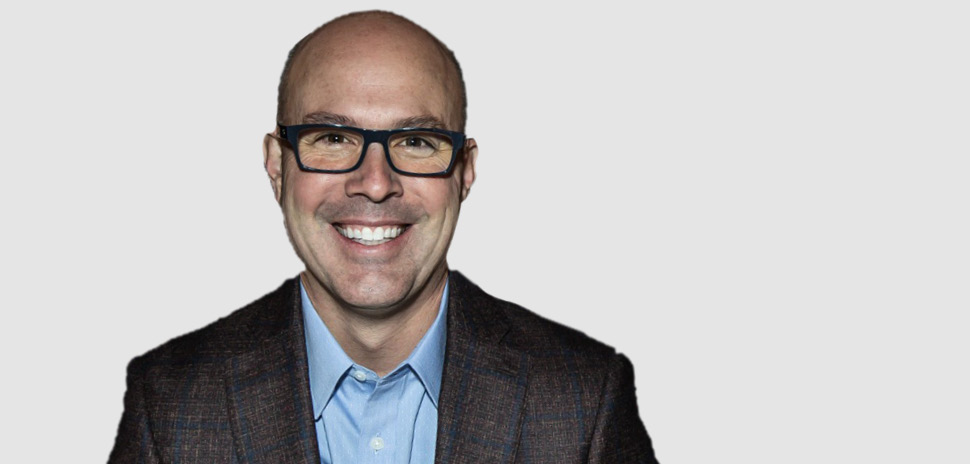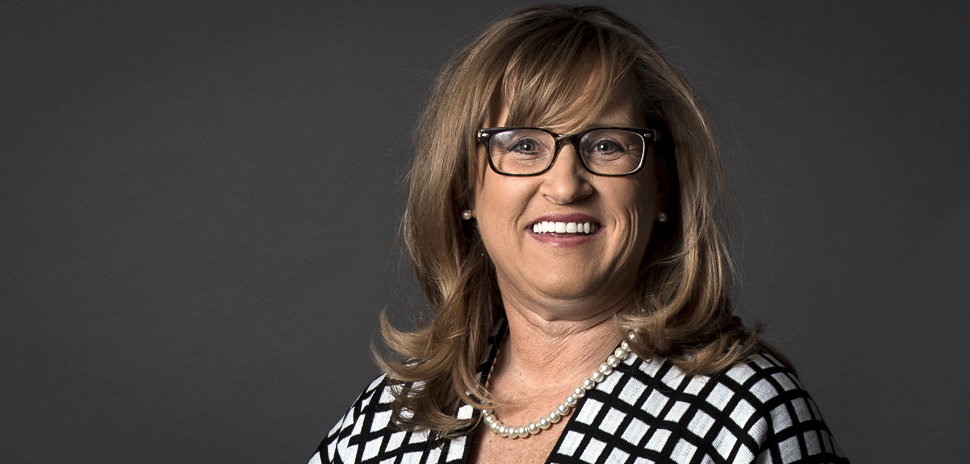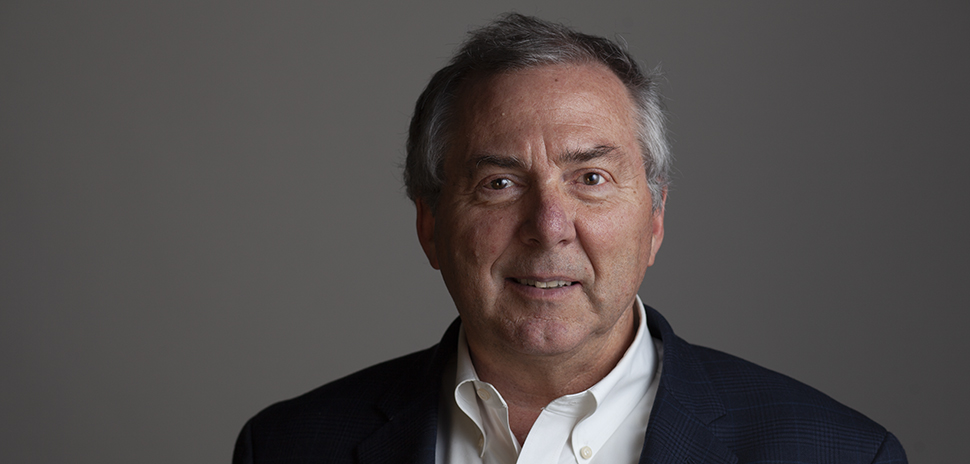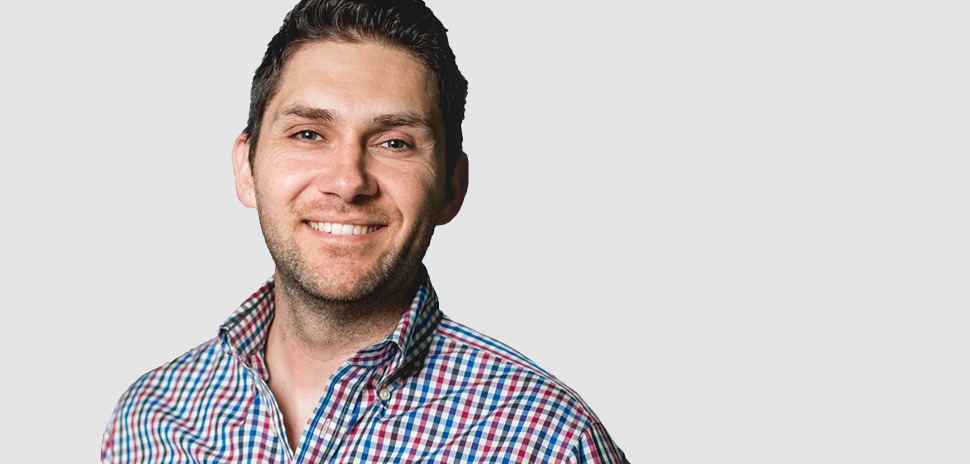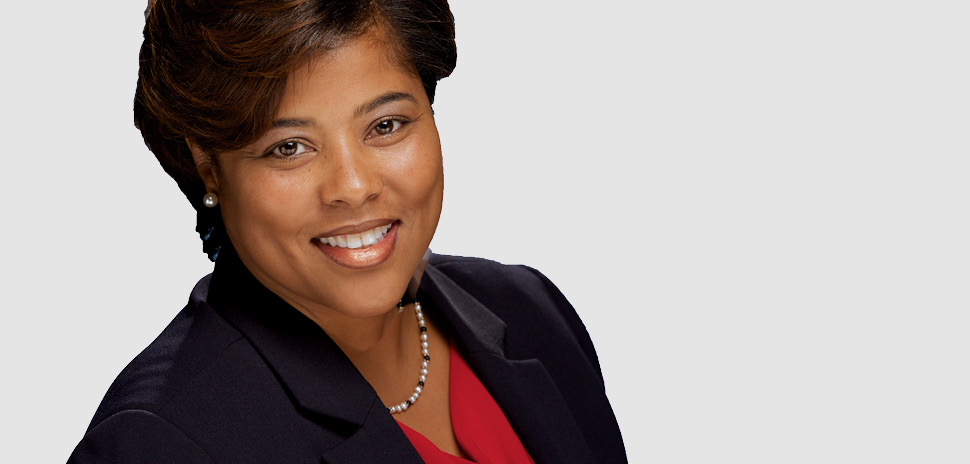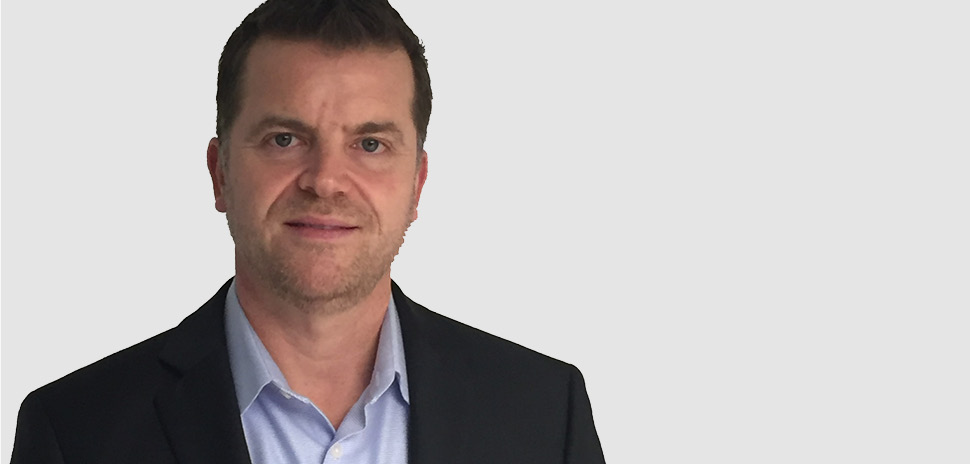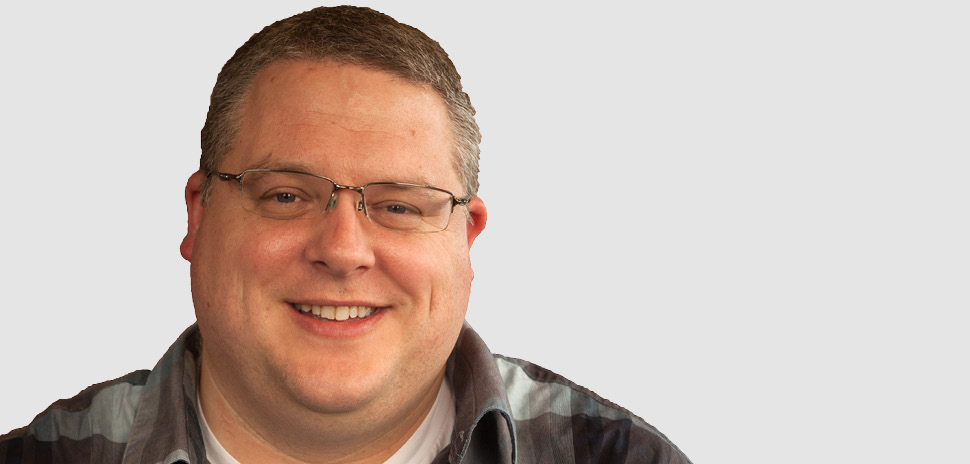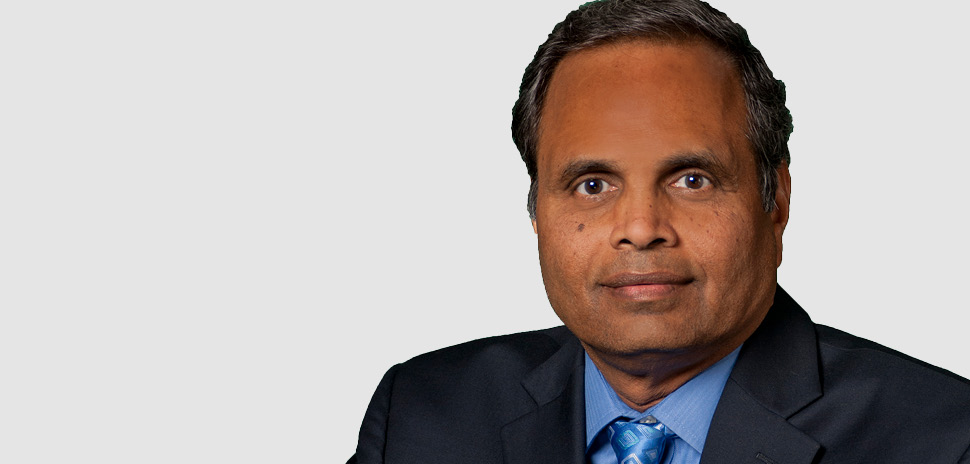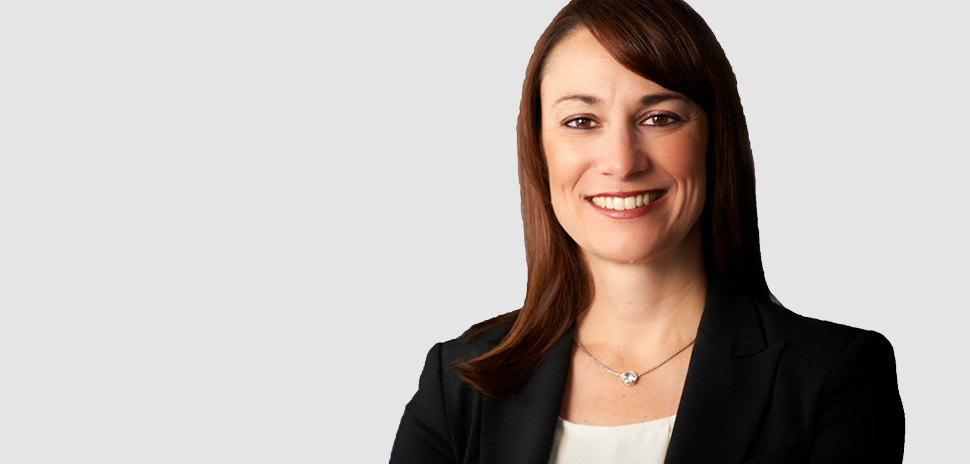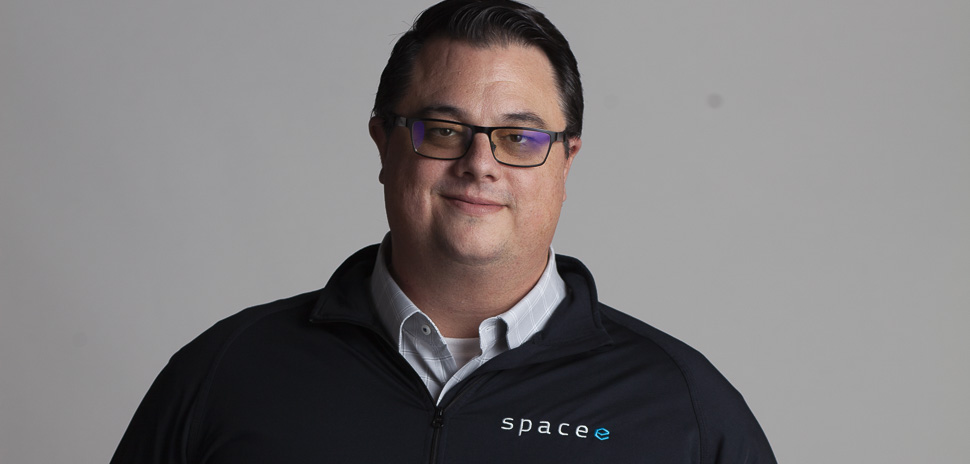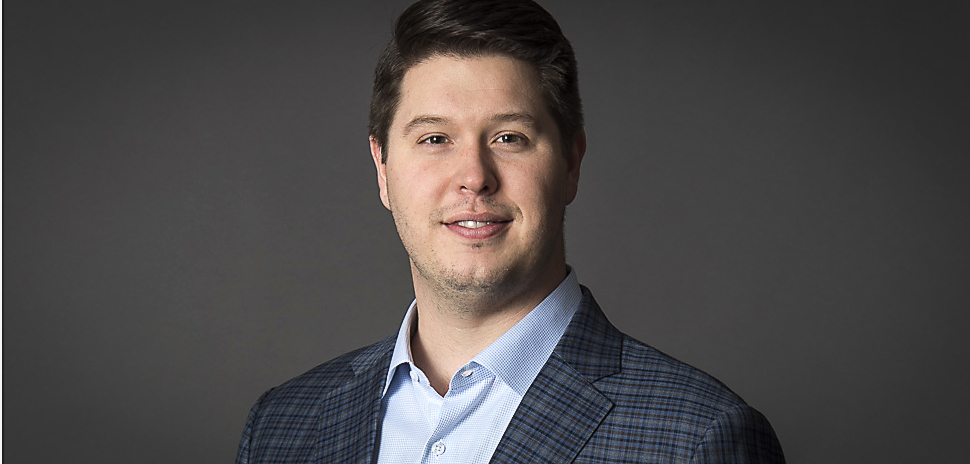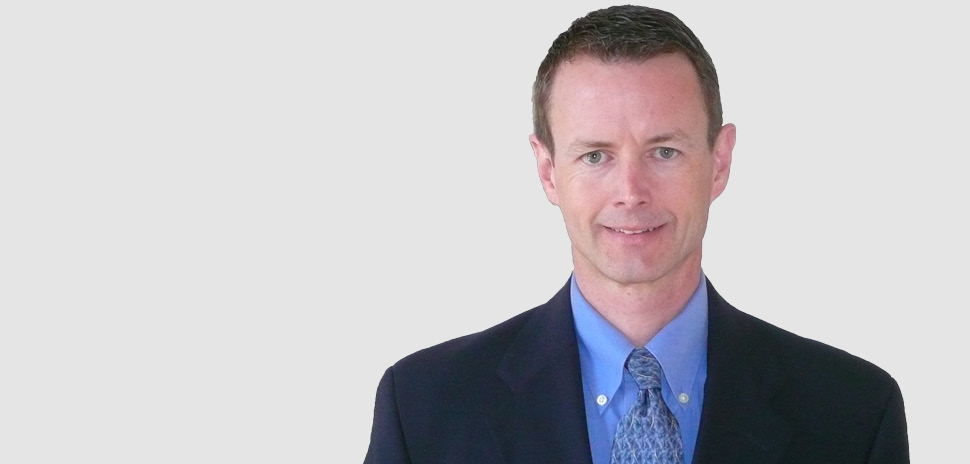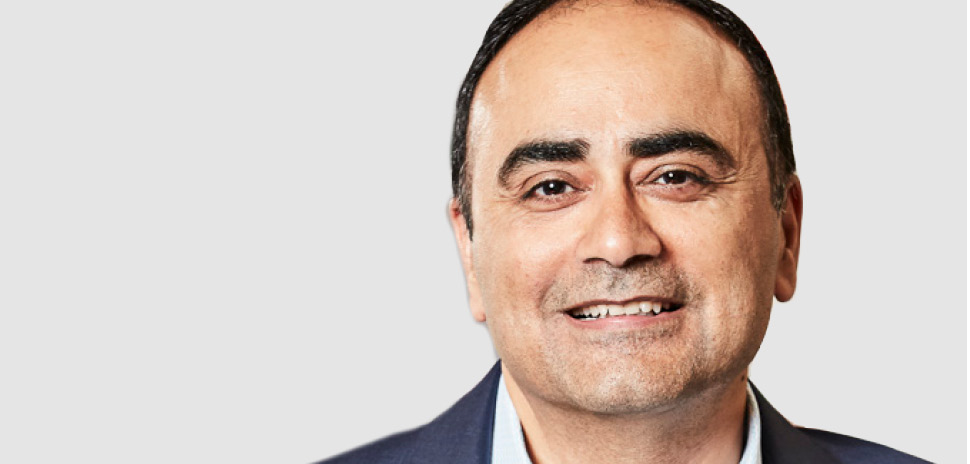They are renegades, visionaries, and people who don’t take no for an answer.
They work in fields ranging from biotech to blockchain, artificial intelligence to the internet of things. With big ideas, solid investments, and the right connections, these men and women are forging the future of tech in North Texas—and have the potential to change the world.
Extended content: Stay tuned throughout the month of February for individual innovator Q+As.
Allison Hatfield, Alex Edwards, and David Kirkpatrick contributed to this series.
Lucas Rodriguez
Co-founder and CEO
CerSci Therapeutics
Lucas Rodriguez was working on his Ph.D. in biomedical engineering and taking business classes at UT Dallas when he met a couple of faculty members who were researching non-opioid pain relief. Rodriguez was intrigued. It took the men just three hours to decide to work together. Today, 31-year-old Rodriguez runs CerSci Therapeutics, a company focused on developing the next wave of drugs for the treatment and prevention of acute and chronic pain. He has raised $20 million in investments and grants since 2015. CerSci used its early funding to acquire a molecular compound called CT-044, invented by Scott Dax, who is now CerSci’s chief scientific officer, in August 2016—just weeks before the U.S. surgeon general declared opioid abuse a public health crisis. CT-044 “works at the source of pain, unlike opioid and other analgesic painkillers,” Rodriguez says, “which work by binding to the opioid receptors in the brain.” In practical terms: CerSci’s pain drug does not affect the central nervous system, so no high and no addiction. What’s more, the mechanism by which the compound works makes it a possibility for treatment of neurodegenerative diseases, such as Alzheimer’s and Parkinson’s. The company expects to enter human safety trials with CT-044 in early 2019 and to have results by the end of the year.
Stephen Ellis
Co-founder and CTO
Plymouth AI
Stephen Ellis has a passion for good coffee. His java pedigree includes stints at Pearl Cup and Urban Blend. He also has a passion for R&D in the field of artificial intelligence. As co-founder and chief technology officer at Plymouth Artificial Intelligence, he’s doing more than drinking lattes. Former director of the North Texas Blockchain Alliance, Ellis formed the company with two others in 2016; until mid-2018 it operated in stealth mode, focusing on the intersection of AI and other emerging technologies such as blockchain, DNA sequencing, and robotics. Now, says Ellis, the startup is ready for prime time. In late 2018, it announced its first product, a lead-to-revenue platform called Johan.ai. “Most of the applications of AI today are focused on helping humans handle more and more data, but it’s time for a new set of platforms aimed at enabling highly accurate actions effortlessly,” Ellis says. Johan.ai aims to reduce the work of qualifying prospects and refining sales channels, helping businesses hone in on the most likely customers, maximize marketing, and optimize revenue.
Ali Agha
Founder and CEO
Olypsis Technologies
Ali Agha wants to start a revolution. In 2016, Agha learned about the blockchain-based platform Ethereum. It was love at first sight. “I knew immediately it was what I wanted to dedicate my life to,” says the 26-year-old son of Pakistani immigrants. Agha began buying all the Ether coins (the monetary unit of Ethereum) he could afford for $10 each. “By the time January 2017 comes around, it’s $1,200,” he says. He used the windfall to start a blockchain innovation firm called Olypsis Technologies, which is now the most prominent blockchain services provider in Texas. The company’s clients include IBM and Thomson Reuters, but building custom solutions for large corporations is only part of the business, Agha says. Olypsis is dedicated to creating cutting-edge decentralized technology solutions that will make the world a more fair and equitable place. To that end, in January 2018, the company will release Dawn, a product that facilitates trustless peer-to-peer transfer of data—“a portal to the decentralized web,” Agha says. No one can censor it, and it’s essentially unhackable. “It provides the equivalent of person-to-person interaction while being totally anonymous and trustless,” he says.
Veena Somareddy
Co-founder, President, and CTO
Neuro Rehab VR
Each year more than 800,000 people in the United States suffer a stroke or other traumatic brain injury. Thousands more are diagnosed with spinal cord injuries and neurodegenerative diseases like Parkinson’s and Huntington’s. “There is no cure for brain damage, but [people] can get better with extensive physical and cognitive training,” says Veena Somareddy, who co-founded Fort Worth-based Neuro Rehab VR. The 29-year-old heads up the company that launched in 2017 to create engaging, fun, motivating, and customized VR/AR exercises that strengthen and form new neural pathways in the brain. “Patients immersed in the virtual 3D environment tend to forget about their limitations in the real world, since they are not influenced by the bias of their diagnosis,” she says. Somareddy studied computer science and game design at UTD and held internships in Silicon Valley before she began developing virtual and augmented reality games and experiences for medical training and simulation. In December 2018, Neuro Rehab VR received a $225,000 research grant from the National Science Foundation, which will fund the development of new products in 2019.
Brig. Gen. Michael Miller
CEO
Viziv Technologies
If you’ve noticed the unique-looking tower off I-35 east just outside Waxahachie and wondered, “What the what?” … you’re not alone. The structure belongs to Viziv Technologies, which is the culmination of more than four decades of research in the field of electromagnetic surface waves, says CEO Michael Miller. “Our research focuses mainly on methods to propagate the electromagnetic phenomenon known as the Zenneck surface wave,” he says. “Unlike traditional radio waves (i.e., television, Wi-Fi, cellular, etc.), Zenneck surface waves are guided along the earth’s surface. Viziv’s primary engineering focus is development of a means to synthesize this surface wave in real-world conditions.” This would solve several problems, Miller says. One of them: lack of basic resources in developing nations. According to The World Bank Annual Report, in 2013 1.06 billion people did not have access to reliable electricity. “Our technology will be a global economic catalyst, especially in developing countries. Our clean, safe, reliable, and affordable wireless power systems will bring hot meals, clean drinking water, advanced medical treatment, and greater access to educational resources to the billion plus people around the world without power.” The company is currently deep in experimentation engineering and getting ready to undergo a next phase of large-scale testing.
Thierry Hubert
CEO
Darwin Ecosystem
Since relocating Darwin Ecosystem from Boston and Montreal to Dallas in 2017, Thierry Hubert has been busy. His AI company has evolved its EEG-based machine learning system, which measures brain patterns, processes data, and helps people with brain injuries or disabilities communicate, to a place where it can be pre-trained by someone close to a disabled person or even a person with a degenerative brain disorder. It has also broken ground with machine learning and AI-based personality analytics that can be used by companies for pre- and post-employment testing and schools that want to identify at-risk students. Projected Personality Interpreter leverages Darwin Ecosystem’s partnership with IBM Watson’s advanced artificial intelligence psychology algorithm to extract the thinking style, personality, social connections, and emotional state buried naturally in human language. You’ll be surprised what a five-question quiz can reveal.
Claudia Mirza
Co-founder and CEO
Akorbi
Claudia Mirza co-founded Akorbi as a home-based translation business in 2002. Today, the provider of translation, interpretation, staffing, call centers, learning services, and localization is the 13th fastest-growing woman-owned business in the world and the fifth fastest-growing language services company in the United States. “The language industry was one of the first to be hit by AI,” Mirza says. The rise of user-generated content and telemedicine also shifted the direction of the company. In order to get ahead of the curve, Akorbi made drastic changes in its workforce, she says, such as hiring specialized talent who understand not only linguistics but also technology. The company currently has three patents pending for Adapt, its proprietary multimodal language services technology platform.
Steve Hebert
Co-founder and CEO
Nimbix
“We pioneered the field known as ‘cloud supercomputing,’ or high-performance computing in the cloud,” says Steve Hebert about Nimbix, which he co-founded in 2010 in his garage. Today, hundreds of customers, including Fortune 500 firms the world over, rely on the Nimbix accelerated computing platform to help them invent new technologies, develop products, or process data. “One great example is a team of rocket engine developers who required massive amounts of computational horsepower to run simulations to design and build 3D-printed, lightweight rocket engines that run on liquid bipropellant,” Hebert says.
Teresa Anaya
Director of Financial Institution Strategy
Blockchain Intelligence Group
Teresa Anaya is passionate about fighting crime. From her office in Flower Mound, she leads a team who creates investigation software that tracks, traces, and monitors illicit activity associated with cryptocurrency. That means she’s on the forefront of halting the sale of illegal drugs, weapons, and child pornography, as well as shutting down assassinations and human trafficking around the world. “Cryptocurrencies have a justified bad reputation for being used in illicit activities,” she says. “They’ve previously been utilized because they are thought to be anonymous, but by utilizing human intelligence, artificial intelligence, and machine learning, transactions can be tracked and traced to within the last 10 minutes.”
Jeff Smith
CTO
Catapult Health
Jeff Smith calls himself “an idea hamster.” With a Ph.D. in AI and robotics and more than 20 U.S. patents, he has a long history of entrepreneurship around emerging technologies in DFW. He’s worked on the frontlines of the commercial internet, wireless, cloud computing, and the internet of things since the late 1980s. Today, as CTO of Catapult Health, he helps facilitate remote preventive medical checkups at worksites. Revenues doubled last year at the telemedicine company, which can handle more than 1,000 video checkups complete with lab-quality bloodwork in a single day.
Dale Carman
Co-founder and Executive Creative Director
Groove Jones
“The moment I put on a VR headset, I realized that the world was changing,” says Dale Carman, creative director and partner at Groove Jones. Carman is one of four who in 2015 founded the next-generation creative agency, which uses virtual reality and augmented reality to bring imagination to life for clients such as Toyota and the Dallas Mavericks. The advent of blockchain rendering upped the game at the company, Carman says. “We are now part of the OTOY Render Network, which enable us to tap into the largest cloud-based network in the world to deliver unparalleled digital content for our clients.” Next up: volumetric media. “[It’s] going to fundamentally change the world,” he says. Carman sees a near future when it will be available on your personal device—and flat media will become as quaint as black and white photography.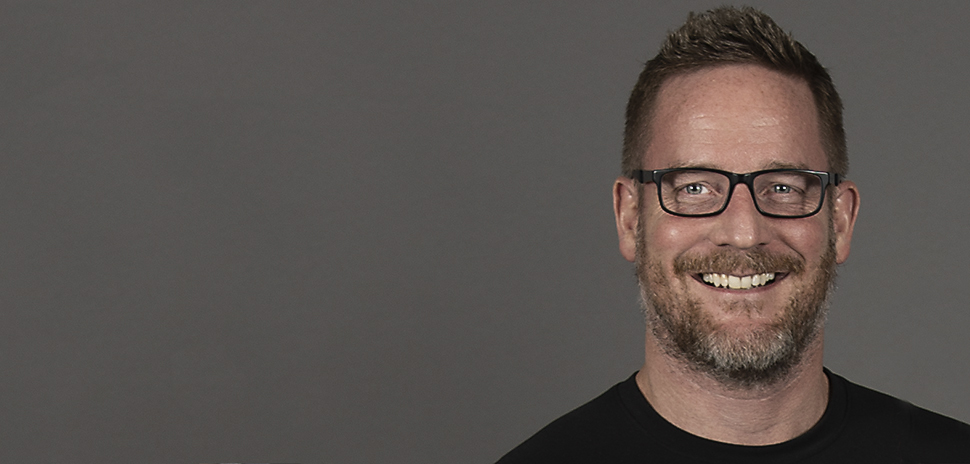
Doug Peckover
Founder and Chief Scientist
VaultChain Security
“You can’t steal what you can’t find,” says Doug Peckover. The first to invent token security used by banks has refined that widely used technology to create the quantum-proof and GDPR-compliant security solution VaultChain. Quantum computers may be only a couple of years away, he says, and they will obliterate classical security and privacy measures. “Encryption is based on how data is stored; VaultChain is based on where data is stored,” he says. The technology is agnostic and designed to protect all types of data. The first release quantum-proofs crypto wallets and exchanges; future applications will secure blockchain, enterprise databases, the cloud, and social media.
Xiaolin Lu
TI Fellow and R&D Manager
Texas Instruments
From her work with the first generations of DSL broadband internet to sensing networks to the IoT to the smart grid, Xiaolin Lu has done it all in her 20-plus years at Texas Instruments. She has a strong drive to remain on the cutting edge of innovation. Lu works at Kilby Labs, which is the semiconductor, system, and technology innovation research and development arm of TI. “Sometimes we are solving the power consumption problem. Sometimes we are solving the high voltage problem. My specific area is solving problems related to low-power or battery-powered devices and the robustness of wireless communication in harsh industrial and automotive environments. That’s specific to me,” she says.
Christopher Brown
Co-founder and CEO
Modular
Christopher Brown starts his day at 4 a.m. with meditation. He then moves on to reviewing code, checking financials, and making customer and partner calls. It’s all in a day’s work for the co-founder of Modular, a technology company building a fully digital bank providing access to traditional checking, savings, lending, and cryptocurrency all in one. Called Zabo, it will launch mid-2019. “There is a divide between your dependable, traditional banking institution and the digital economy. Nobody is bringing these two together in the U.S. yet, and that’s where we fit in.” Brown says. “We’d like to be that bank you trust that also provides access to things like global currency.”
Cheryl L. Bevelle-Orange
Director, Information Technology
FedEx Services
FedEx Services is moving from a Waterfall world to the more collaborative methodology of Agile, says Cheryl Bevelle-Orange, director of IT at the company’s Plano headquarters. Heretofore, the business side of the company would create requirements, turn them over to IT, and wait to see if IT managed the intended interpretation of the requirements. “With this structure of working many times what is delivered is not what was requested,” she says. For 2019, Bevelle-Orange is tasked with helping more than 300 team members break through to the Agile mindset. “The transformation started as an IT-only initiative. When the business began to realize this change is hard and massive but it will get us to business agility, it was like magic. Everything began to fall into place,” she says.
Ludovic Sauvage
Head of Big Data, High-Performance Computing, and Quantum Computing for North America
Atos
At the moment, quantum computers are incredibly expensive and rare. So how does a quantum software developer test its ideas? One way is with an Atos Quantum Learning Machine. At Atos’ North American headquarters in Irving, Ludovic Sauvage leads business development for the company and works with enterprise, educational institutions, and government agencies that want to work with the simulators, which are located in Tennessee at Oak Ridge National Laboratory and Illinois at Argonne National Laboratory. “Our company is enabling access to quantum technologies so scientists can start developing algorithms and applications with affordable and easy-to-use simulators—without having to wait for quantum machines to be widely available,” Sauvage says. Continued plans to push the envelope include three Atos R&D centers and innovation labs to focus on machine learning and artificial intelligence, one of which will be built in Irving.
Corey Clark
CTO
Balanced Media | Technology
With the mission of bringing purpose to play, Corey Clark is using video games to advance medicine. His company, Balanced, combines human intelligence and machine learning that allows people and computers to work together to solve problems. The company’s first product, a gaming platform called Hewmen, has been used to analyze medical imagery to locate disease and process data to help fight cancer, but what really excites Clark is what lies ahead. “We can already see how much impact Hewmen has on the ability to advance research, but where I believe we will have the most impact is when communities playing Hewmen-powered video games are an active part of the patient treatment process. Whether that is happening as part of our pilot study looking at how our games improve outcomes of children receiving chemotherapy or parsing genomic data to help doctors find the best treatments for patients, empowering communities of gamers and influencers can have real impact on people’s lives.”
Ram Dantu
Professor and Director of the Center for Information and Cyber Security
University of North Texas
If you were to suffer a heart attack while out shopping, you’d have only around a 10 percent chance of seeing the next day, says Ram Dantu. “CPR can make a big difference in the survival rate,” he says. That’s why he created a smartphone-based platform to help bystanders perform resuscitation. Aided by a smartphone secured to the arm or hand by any available method—a plastic bag or scarf, for example—a bystander with no prior CPR training can administer high-quality CPR and send real-time data to a hospital or physician. The first of its kind, Dantu’s innovation has the potential to improve survival rates by more than 40 percent. Additionally, the app could help nursing home staff in suburban areas and underserved populations where access to specialists is limited.
Emilie Ray
President of Transformation Initiatives
McKesson
Health care is changing at an unprecedented speed says Emilie Ray. As president of Transformation Initiatives at McKesson Ray leads the company’s multiyear transformation initiative supporting innovation, accelerating growth, and investing in the future. She cites the “energy and motivation that is derived from the new and disruptive entrants in the market” as something that’s pushing her to new levels. “It helps you see past the status quo or settling for the norm into the ‘what if’ or ‘what could be,’ if we were challenged in a different way,” she says, adding that true innovation comes in many different shapes and sizes.
Skip Howard
Founder and CEO
Spacee
Growing up, Skip Howard’s dyslexia made schoolwork difficult. His high school guidance counselor recommended he bypass college and find a minimum wage job instead. But Howard didn’t listen—and he’s now the CEO and founder of a post-mobile augmented reality startup revolutionizing the retail industry. With its patented virtual touch technology, Spacee uses light only to make any 2D or 3D surface an interactive touchscreen. “Every Spacee solution is designed to be a powerful communal story that also delivers a deep personal connection,” Howard says. Whether it’s turning a store window into an interactive screen for customers to make their own suit or creating digital responses when someone picks up a product in a shoe store, Spacee has been called the future of shopping. Howard has taken his company global, is in the process of signing Fortune 500 brands, and is currently taking off with a new robotics and sensor division. “I love technology that has the potential to change the world for the better,” Howard says.
Steven Duong
Associate Vice President, Design + Planning and Economics
AECOM
Steven Duong had his first major moment in 2017, when he was one of 10 to win the HyperloopONE Global Challengel—a win that kicked off the movement to connect Dallas-Fort Worth, Austin, San Antonio, Houston, and Laredo with Hyperloop. Invented by Elon Musk, the technology can provide fast, sustainable, on-demand travel cross-state in a matter of minutes. Duong’s day job is as an urban planner and designer with global architectural and engineering firm AECOM, where he leads the Design + Planning and Economics Studio to solve complex urban issues. He also serves as an adjunct professor at UTA and is teaching a brand-new interdisciplinary studio course in the spring, educating students on how to design future cities with the ever-evolving technological landscape. “Cities are very often designed around transportation,” he says, “so breakthroughs in that sector have dramatic implications on the future design of our cities and the way we interact with our environment.” Most recently, Duong won a contract to create Dallas’s first-ever climate action plan to help the city meet the goals of the Paris Agreement.
Andrew Schulz
CEO and Co-founder
NoiseAware
NoiseAware began when Andrew Schulz’s co-founder, Dave Krauss, rented his apartment to vacationing guests. But what began as a typical Airbnb rental became a nightmare when guests threw a raging party and Krauss was held responsible for thousands in damages. Schulz responded by building the technology behind the NoiseAware platform, which alerts homeowners via mobile app anytime guests are potentially causing a disturbance. In the weeks that followed the launch, the duo traveled to industry conferences, sharing their story. They heard from an “astounding” number of customers that NoiseAware had saved their businesses, with one woman crying because her city was on the verge of banning rentals due to noise complaints. Today, more than 350 apartments within a 5-mile radius of downtown Dallas use the technology. “Our key differentiator is that with all the benefits we provide, we don’t record any content, and the end result is a privacy-safe quantification of noise within any property, even outdoors,” Schulz says. Recently, the team developed an outdoor, weatherproof sensor to serve the vacation rental market.
Melbourne O’Banion
CEO and Co-founder
Bestow
Because of his exposure to business early on—he had his first summer job at 13—Melbourne O’Banion had the confidence to become an entrepreneur right out of college. He knew that he wanted to be an owner and investor, and went on to participate in a number of startups. O’Banion took the lessons he learned from building companies and used them to co-found Bestow: a “smarter way to buy life insurance” that allows consumers to purchase up to seven-figure coverage in less than 10 minutes online, without a medical exam. The Bestow technology offers term life plans that are affordable, customizable, and fast in 48 states. Soon to launch is the Bestow Foundation, which will offer assistance to families struggling after the loss of a loved one. “We are a mission-driven company, bringing technology to an antiquated industry, all to empower families to prepare for a better financial future,” O’Banion says. “
Craig Lee
Director, AT&T Foundry
AT&T
Craig Lee helped launch AT&T’s Foundry in 2013 and the Foundry for Connected Health at Texas Medical Center in Houston in 2016. Dedicated to the internet of things, the Foundry innovates solutions for AT&T customers with the goal of creating a proof of concept using tools such as rapid prototyping. Lee led AT&T’s recent expansion of the Foundry to align with the company’s effort to drive digital transformation for customers in five industry verticals: manufacturing, health care, finance, retail, and the public sector. He says that the company’s plans for 5G and edge computing in 2019 will really tap into the potential of new network technologies.
Gurmeet Singh
Chief Digital Officer and Chief Information Officer
7-Eleven
As technology becomes omnipresent in peoples’ lives, Gurmeet Singh says the key is to “innovate for the customer and look at all the trends in terms of how things are shaping up in the industry and the intersection of technology.” Irving-headquartered 7-Eleven is no stranger to historic firsts in the name of convenience. The 91-year-old retailer is undergoing a digital transformation, turning to emerging tech like AI, IoT, AR, machine learning, and more to improve the customer experience.
A version of this series was first published in Dallas Innovates 2019—The Magazine.
Read it online
Dallas Innovates 2019—The Magazine explores the region as a rising tech hub that will shape the future of innovation. The theme of our second annual print publication, “A Breakout Moment,” explores why now is the time for the region to grab its place in the tech universe.
![]()
Sign up to keep your eye on what’s new and next in Dallas-Fort Worth, every day.

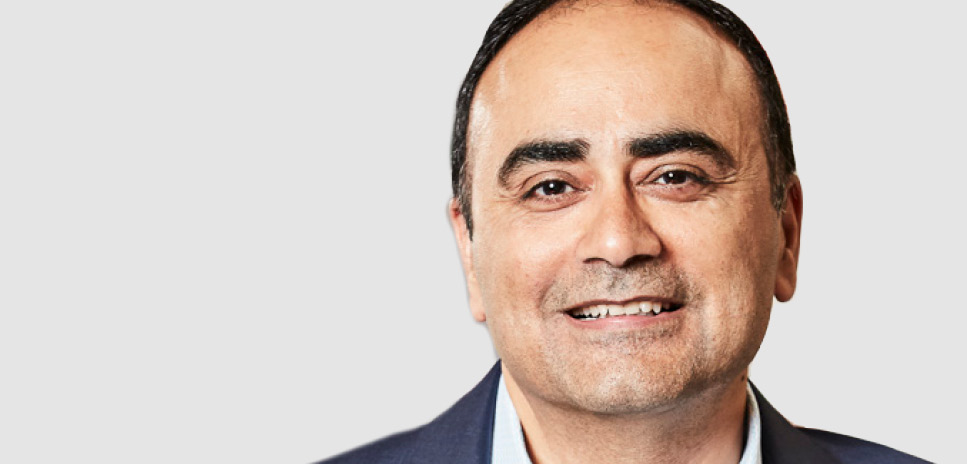
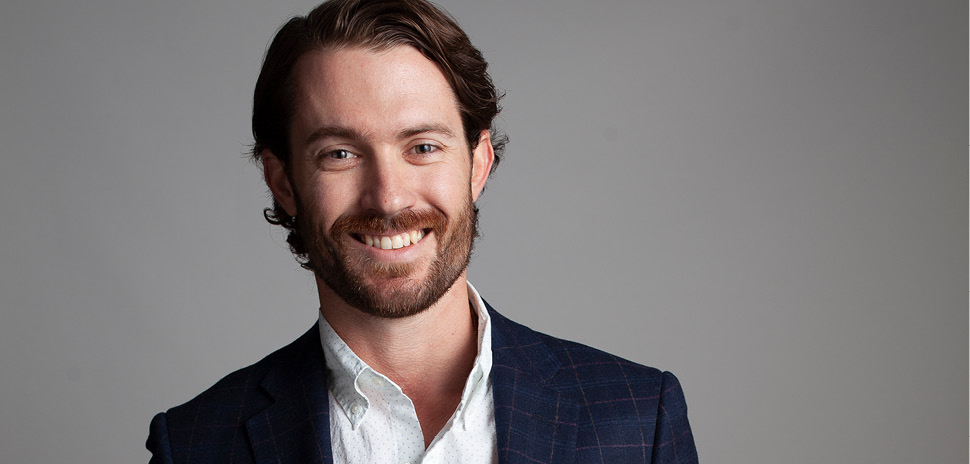
![Stephen Ellis, Plymouth AI [Photo: Skyler Fike]](https://ww-static-prod.s3.amazonaws.com/wp-content/uploads/2019/02/StephenEllis_PlymouthAI_970.jpg)
![Ali Agha, Olypsis Technologies [Photo: Skyler Fike]](https://ww-static-prod.s3.amazonaws.com/wp-content/uploads/2019/02/AliAgha_970.jpg)
![Veena Somareddy, Neuro Rehab VR [Photo: Skyler Fike]](https://ww-static-prod.s3.amazonaws.com/wp-content/uploads/2019/02/VeenaSomareddy_970.jpg)
![Michael Miller, Viziv Technologies [Photo: Viziv Technologies]](https://ww-static-prod.s3.amazonaws.com/wp-content/uploads/2019/02/MichaelMiller_VizivTech_970.jpg)

